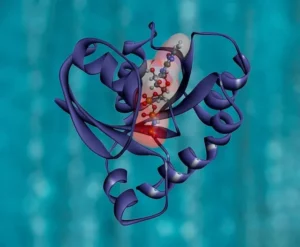What is Proteinuria

What is Proteinuria?
Who gets it, why it happens, what is the relationship with diet. What is proteinuria, Excretion of more than normal amount of protein in urine is a health risk. In medical terms it is called proteinuria. Know when such a situation arises.
Kidneys act much like filters. Through purification, the vital organ retains useful substances in the body and expels harmful substances through urine. It keeps the blood pure. If there is any variation in the pore or structure of the filter, the desired function is not performed properly, so it is with the kidney. In some diseases, the kidney’s normal filtration process is disrupted, resulting in excess protein being excreted from the body. Normally larger proteins (such as albumin) cannot pass through the kidney filter, but less than 30 mg per day. But if there is a defect in the filter hole, the very important protein like albumin also gets out easily.
Medical Terms
Up to 150 mg of protein excreted in the urine throughout the day is within the normal range. It is bad to go out more than that. Then there is a negative impact on health. Excretion of more than normal protein is called proteinuria in medical terms.
What causes proteinuria?
The main cause of proteinuria in Bangladesh is inflammation of the kidneys, medically known as glomerulonephritis. People with diabetes and high blood pressure are at risk of kidney damage, especially those whose diabetes or blood pressure is not under control. Long-term uncontrolled diabetes and high blood pressure cause unwanted changes in the blood vessels of the kidneys, resulting in protein excretion in the urine. These three diseases are responsible for almost 90 percent of cases of proteinuria in the country.

Apart from this, there are some diseases in which protein can be excreted in the urine. Such as vasculitis (inflammation of the blood vessels), lupus nephritis, multiple myeloma (a type of blood cancer) and amyloidosis (a disease in which proteins accumulate abnormally in the body). But the number of such patients is less. Dehydration, infection or fever, urinary tract infections, or heavy exercise can cause temporary protein excretion.
Protein
In our country, many people still cannot afford to eat protein-rich food according to their daily needs. So our sugar intake is high. Sugar accumulates in the body. Increases fat. Increases the risk of diabetes and high blood pressure. However, if a healthy person consumes excess protein, it can cause extra stress on the kidneys. Therefore, it is necessary to know how much protein is needed daily. It has a simple calculation. You should eat as many grams of protein per day as you weigh. If you weigh 60 kg, you can eat 60 grams of protein.
Protein requirements
A large egg contains 6 to 8 grams of protein. 100 grams of chicken meat contains 26-27 grams of protein. Different types of fish vary in protein content. However, approximately 22-26 grams of protein are available in 100 grams of fish. Tuna fish is high in protein. 1 cup of milk contains 7-8 grams of protein. If your weight is 60 kg, then eating 100 grams of meat, 100 grams of fish, 1 egg and half a cup of milk a day will meet your protein requirements.
How to reduce the risk of kidney disease perineuria?
There is no substitute for a healthy lifestyle to prevent proteinuria and any kidney disease.
A balanced diet is essential. Carbohydrates, proteins, fatty foods as needed, as well as lots of vegetables and fruits. Drink enough water daily.
Keep the body active. Manual labor is desirable. Set aside time every day for activities such as exercise or sports that involve physical exertion.
Keep weight under control. Find out what is the right weight for you according to your height. Keep your weight within that limit. Excess weight also increases the risk of diabetes and high blood pressure.
Some topic
- Avoid smoking. Smoking damages kidney blood vessels.
- Even if you are not a smoker, secondhand smoke can damage your kidneys. So everyone should discourage smoking.
- 40 Payroll requires some testing at least once every year.
- These tests are important even if you feel completely healthy physically.
It is necessary to know whether you have diabetes or kidney disease, whether protein is passing in the urine, how is the blood pressure. Remember, this type of disease can remain dormant in your body for years without any symptoms.
If you have diabetes, high blood pressure or long-term kidney disease, be sure to stay under the supervision of a doctor. Follow all the doctor’s advice to keep these diseases under control.
Who is at higher risk for proteinuria?
- Those suffering from diabetes.
- Those suffering from high blood pressure.
- Those who weigh more than normal.
- Those who have a family history of proteinuria.
The risk of proteinuria and kidney failure is highest in people with diabetes. Therefore, another urine test is recommended for diabetic patients, through which proteinuria can be detected at an early stage. This is urinary ACR (albumin creatinine ratio). Although the test is a bit expensive, getting it done once a year can save a lot of unwanted future costs. People with chronic kidney disease should also get the test done at least once a year.
What is main cause of proteinuria?
Proteinuria, the presence of excess protein in urine, can be attributed to various underlying factors, but one of the primary causes is kidney dysfunction. The kidneys play a crucial role in filtering blood and removing waste products, including excess proteins. When the filtering units of the kidneys, called nephrons, are damaged or compromised, they may allow proteins to leak into the urine. This dysfunction can result from conditions such as glomerulonephritis, diabetic nephropathy, or hypertension, all of which impact the delicate balance of filtration in the kidneys. Additionally, certain medications, infections, and systemic diseases can contribute to proteinuria. Understanding the root cause of proteinuria is essential for effective diagnosis and management, as it often serves as an early indicator of potential kidney problems that require timely intervention and care.
What is a normal proteinuria level?
In the realm of renal health, understanding the significance of proteinuria levels is paramount. Proteinuria, or the presence of excess protein in the urine, serves as a crucial indicator of potential kidney dysfunction. A normal proteinuria level is generally considered to be less than 150 milligrams per day. This threshold, however, may vary based on factors such as age, sex, and overall health. Monitoring proteinuria is essential as elevated levels may signify underlying kidney issues, diabetes, or hypertension. Regular assessments of proteinuria levels not only contribute to the early detection of renal abnormalities but also aid in formulating effective preventive measures. Embracing a proactive approach to kidney health involves comprehending and maintaining optimal proteinuria levels, thereby safeguarding the intricate balance required for the body’s filtration system to function seamlessly.
Is proteinuria harmful?
Proteinuria, the presence of excessive protein in the urine, often raises concerns about kidney health. While a certain amount of protein in urine is normal, elevated levels may indicate an underlying health issue. The significance of proteinuria lies in its potential to signal kidney damage or dysfunction. The kidneys play a crucial role in filtering waste products and excess substances from the blood, including proteins. When the filtration process is compromised, proteins may leak into the urine. Though proteinuria itself may not cause noticeable symptoms, it is crucial to address its underlying causes promptly. Unchecked proteinuria can be harmful, as it may be indicative of conditions such as kidney disease, diabetes, or hypertension. Regular monitoring and early intervention are essential to prevent further kidney damage and maintain overall health. If you notice persistent proteinuria, consulting with a healthcare professional is vital for a thorough evaluation and appropriate management strategies.
How long can you live with Proteinuria
Proteinuria, the presence of excess protein in urine, can be a concerning condition with potential implications for one’s overall health. The duration one can live with proteinuria varies widely and depends on several factors, including the underlying cause and the individual’s overall health. In some cases, proteinuria may be a temporary and reversible condition, while in others, it may signal an underlying kidney or systemic issue. It is crucial for individuals experiencing persistent proteinuria to consult with a healthcare professional for a thorough evaluation and diagnosis. Timely intervention, lifestyle modifications, and appropriate medical management can play a pivotal role in addressing the root cause and potentially extending one’s lifespan. However, as the impact of proteinuria is highly individualized, it underscores the importance of personalized medical guidance and ongoing monitoring to optimize overall health and well-being.
FAQ:
What is Proteinuria and why is it important to understand?
Proteinuria refers to the presence of excess protein in the urine, which can be a sign of underlying health issues. Understanding it is crucial for early detection and management of potential kidney or urinary system problems.
What are the common causes of Proteinuria?
Proteinuria can be caused by various factors such as kidney disease, diabetes, hypertension, and certain infections. Effective treatment requires root cause identification.
How is Proteinuria diagnosed?
Diagnosis involves urine tests, including a 24-hour urine collection or a spot urine test, to measure the amount of protein present. Blood tests could also be performed to evaluate kidney function.
Can Proteinuria be a symptom of conditions other than kidney problems?
Yes, Proteinuria can sometimes be a symptom of conditions like heart disease, autoimmune disorders, and certain infections. It’s essential to consult a healthcare professional for a comprehensive evaluation.
What are the potential complications of untreated Proteinuria?
If left untreated, Proteinuria can lead to kidney damage and contribute to the progression of kidney disease. Timely intervention and lifestyle modifications can help prevent complications.
Are there lifestyle changes that can help manage Proteinuria?
Adopting a healthy lifestyle, including a balanced diet, regular exercise, and managing underlying health conditions like diabetes and hypertension, can contribute to managing Proteinuria.
Can medications help in treating Proteinuria?
Depending on the underlying cause, medications such as angiotensin-converting enzyme (ACE) inhibitors or angiotensin II receptor blockers (ARBs) may be prescribed to manage Proteinuria and protect kidney function.
Is Proteinuria reversible, or is it a chronic condition?
The reversibility of Proteinuria depends on the underlying cause. In some cases, addressing the root cause can lead to improvement, while in others, it may be a chronic condition that requires ongoing management.
Are there preventive measures for Proteinuria?
Maintaining a healthy lifestyle, managing chronic conditions, regular health check-ups, and staying hydrated are essential preventive measures to reduce the risk of developing Proteinuria.
How often should individuals get tested for Proteinuria, especially if they have risk factors?
Individuals with risk factors such as diabetes, hypertension, or a family history of kidney disease should discuss the frequency of Proteinuria testing with their healthcare provider. Early detection can be aided by routine screenings.
Final Thoughts:
In unraveling the mystery of proteinuria, we discover not just a clinical indicator but a silent messenger that speaks volumes about our renal health. As we delve into the depths of this protein exodus, let it be a reminder that our kidneys are vigilant guardians, and understanding proteinuria is the first step in nurturing their well-being.
Note: I’m not a doctor, Just I Provide expertise research knowledge.






